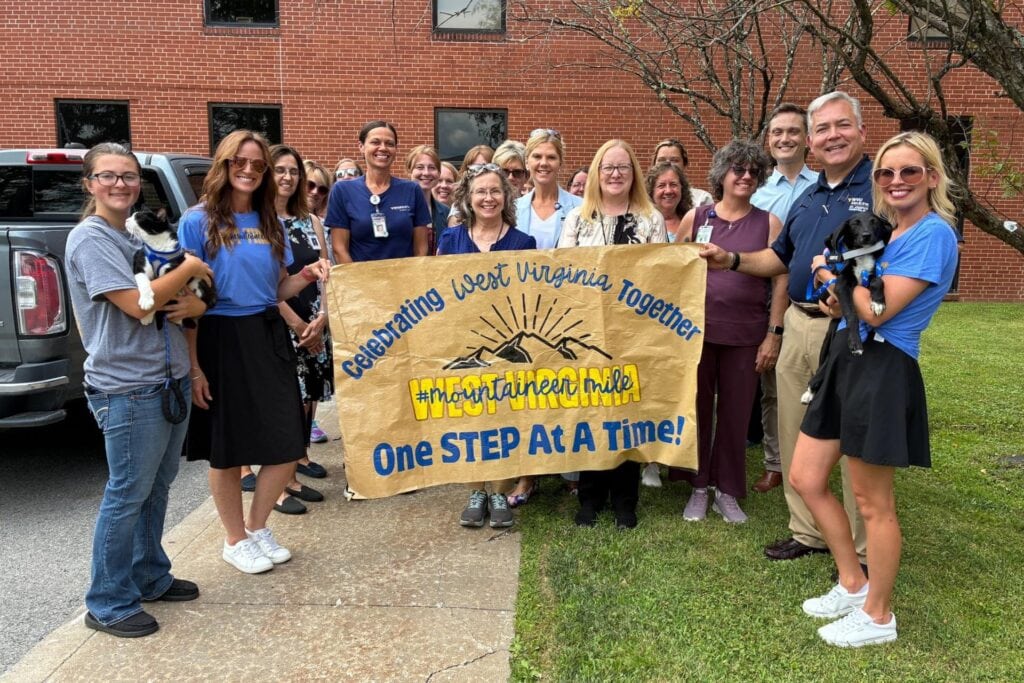Nurse practitioners from communities of color are generally underrepresented in the workforce. However, a recent study from West Virginia University occupational licensing experts revealed more appropriate racial representation in states permitting full practice authority, or FPA, which entitles NPs to perform all the responsibilities for which they are trained.
According to Alicia Plemmons, John Chambers College of Business and Economics assistant professor and coordinator for scope of practice research at the Knee Center for the Study of Occupational Regulation, “We also found evidence that Black and Asian nurse practitioners serve more Black Medicare beneficiaries after receiving FPA. Full practice authority is a costless way of helping communities of color address health care access disparities.”
Plemmons and Edward Timmons, service associate professor and director of the Knee Center, published their results in Policy, Politics and Nursing Practice. Their findings show that in FPA states, the NP workforce tends to be more diverse and more racially and ethnically aligned with the state’s overall population.
The study ties together three health care industry concerns: the worsening shortage of primary care providers in the United States, especially in marginalized communities, the importance of enabling patients from communities of color to choose primary care providers who share their racial and ethnic backgrounds and the debate over allowing nurse practitioners to exercise FPA.
NPs are among the most highly-trained members of the nursing professions. When a state permits them to exercise FPA, NPs can serve as primary care providers, performing the full range of duties for which they’re qualified without entering into prohibitively expensive collaboration contracts with supervising physicians — contracts costing from $75 to nearly $4,000 a month.
“In every state, NPs may all meet with patients, but that’s where the similarities stop,” Plemmons explained. “Some states require physician supervision for NPs, while others simply require collaboration agreements. Some limit NPs in diagnosing patients or developing treatment plans, others limit making specialist referrals or ordering imaging services. Probably the most contentious restriction is prescribing medication.”
To examine the effect of FPA on the racial and ethnic diversity of the NP workforce, Plemmons and Timmons compared the backgrounds of NPs, patients and overall state populations nationwide, focusing on Black, Asian and Hispanic communities. Overall, they found that FPA states had higher concentrations of NPs from communities of color.
Representation looked different among different communities, but the data for Black NPs and patients in FPA states stood out: Black NPs in FPA states served 2.8% more Black Medicare beneficiaries than Black NPs in non-FPA states.
Plemmons said that’s significant because multiple studies have shown that patients of color prefer primary care providers who share their backgrounds. These patients may be more likely to schedule annual check-ups, share relevant information and follow a treatment regimen when the provider brings cultural commonalities and competencies to the table. Cultural misalignment between patients and providers may be one reason behind racial disparities in health care outcomes.
“Black women die in childbirth at staggering rates compared to white women, frequently due to practitioners’ lack of cultural competence and respect,” Plemmons said. “When Black pregnant women receive prenatal care from a Black provider, mortality rates reduce sharply.”
But finding a doctor, especially a Black doctor, isn’t always easy. That problem is getting worse and is hitting hardest in marginalized communities — diverse, poor or rural — where many doctors won’t work, though NPs will.
“The U.S. struggles to provide adequate primary care to its residents. Provider shortages are a key contributor, as is our aging population, and shortages are particularly acute in communities of color,” Plemmons said. “The Association of American Medical Colleges estimates a shortage of 54,100 to 139,000 physicians by 2033, compounded by the fact that a majority of physicians will specialize in something more lucrative than primary care.
“However, nearly 82% of NPs will specialize in primary care. And while the number of physicians entering the workforce is declining, the per capita supply of NPs has grown significantly.”
Plemmons said she’s aware of “roughly 50 studies using combinations of Medicare and private insurance data to observe quality, access and cost outcomes when patients are served by nurse practitioners rather than physicians. The overwhelming majority find no effect, or find improvements, in terms of increased access and lower costs.”
Regardless, many states limit NPs’ FPA, often on the basis of concerns about quality of care.
During the COVID-19 pandemic in 2020, many states temporarily waived FPA. A few waivers remain in place. Overall, 26 states and the District of Columbia permit FPA, “while other states continue to place restrictions that require nurse practitioners to have supervisory or collaborative relationships with physicians to deliver care or prescribe medications.”
Policies requiring agreements with physicians mean that even though NPs are willing and available to serve the marginalized communities where physicians won’t move, they can only work where physicians are available.
“West Virginia is unique in that, after three years of collaboration with a physician, an NP may have nearly all the rights of FPA for job duties and prescribing medications, except Schedule II drugs,” Plemmons said. “NPs are recognized in state policy as primary care providers. Our state has one of the most expansive policies among South Census regions, even though it’s relatively restrictive as compared nationally.”













